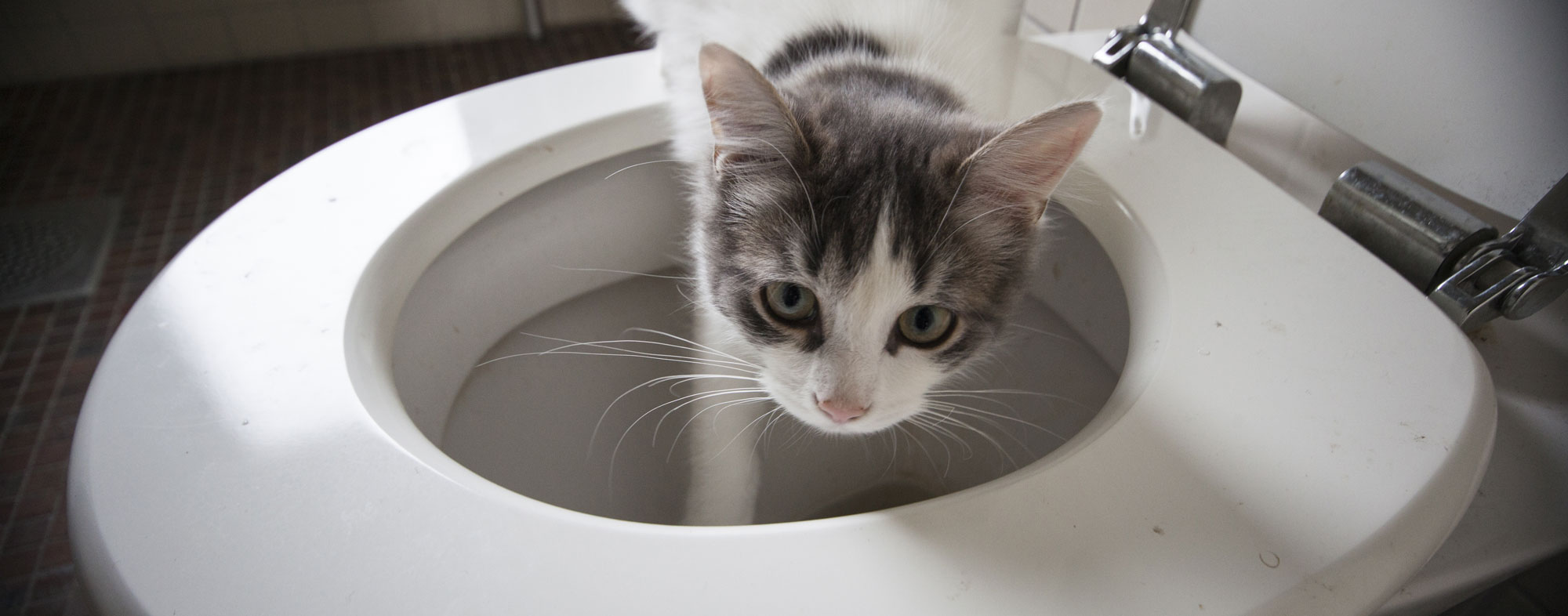Avoid Plumbing Problems: Don't Flush Cat Poop Down Your Toilet - Expert Advice
Avoid Plumbing Problems: Don't Flush Cat Poop Down Your Toilet - Expert Advice
Blog Article
How do you feel in relation to Can You Flush Cat Poop Down The Toilet??

Introduction
As pet cat proprietors, it's necessary to be mindful of just how we dispose of our feline pals' waste. While it might seem hassle-free to flush cat poop down the bathroom, this practice can have detrimental repercussions for both the atmosphere and human wellness.
Alternatives to Flushing
Fortunately, there are much safer and a lot more liable means to deal with pet cat poop. Consider the following alternatives:
1. Scoop and Dispose in Trash
The most typical technique of taking care of cat poop is to scoop it into a biodegradable bag and throw it in the trash. Be sure to use a dedicated litter scoop and dispose of the waste quickly.
2. Use Biodegradable Litter
Choose naturally degradable cat litter made from materials such as corn or wheat. These litters are eco-friendly and can be securely thrown away in the garbage.
3. Hide in the Yard
If you have a lawn, think about burying cat waste in a designated area far from veggie yards and water resources. Make sure to dig deep adequate to avoid contamination of groundwater.
4. Install a Pet Waste Disposal System
Buy a pet garbage disposal system particularly developed for cat waste. These systems use enzymes to break down the waste, decreasing odor and environmental influence.
Wellness Risks
In addition to ecological worries, flushing cat waste can also posture health and wellness risks to humans. Pet cat feces may contain Toxoplasma gondii, a parasite that can create toxoplasmosis-- a potentially severe ailment, especially for pregnant females and individuals with weakened body immune systems.
Ecological Impact
Flushing cat poop presents unsafe microorganisms and parasites right into the supply of water, posing a substantial risk to marine ecosystems. These impurities can negatively influence marine life and concession water high quality.
Conclusion
Accountable pet dog ownership expands beyond giving food and sanctuary-- it additionally involves correct waste administration. By avoiding flushing pet cat poop down the toilet and going with different disposal approaches, we can reduce our ecological footprint and shield human health and wellness.
Why Can’t I Flush Cat Poop?
It Spreads a Parasite
Cats are frequently infected with a parasite called toxoplasma gondii. The parasite causes an infection called toxoplasmosis. It is usually harmless to cats. The parasite only uses cat poop as a host for its eggs. Otherwise, the cat’s immune system usually keeps the infection at low enough levels to maintain its own health. But it does not stop the develop of eggs. These eggs are tiny and surprisingly tough. They may survive for a year before they begin to grow. But that’s the problem.
Our wastewater system is not designed to deal with toxoplasmosis eggs. Instead, most eggs will flush from your toilet into sewers and wastewater management plants. After the sewage is treated for many other harmful things in it, it is typically released into local rivers, lakes, or oceans. Here, the toxoplasmosis eggs can find new hosts, including starfish, crabs, otters, and many other wildlife. For many, this is a significant risk to their health. Toxoplasmosis can also end up infecting water sources that are important for agriculture, which means our deer, pigs, and sheep can get infected too.
Is There Risk to Humans?
There can be a risk to human life from flushing cat poop down the toilet. If you do so, the parasites from your cat’s poop can end up in shellfish, game animals, or livestock. If this meat is then served raw or undercooked, the people who eat it can get sick.
In fact, according to the CDC, 40 million people in the United States are infected with toxoplasma gondii. They get it from exposure to infected seafood, or from some kind of cat poop contamination, like drinking from a stream that is contaminated or touching anything that has come into contact with cat poop. That includes just cleaning a cat litter box.
Most people who get infected with these parasites will not develop any symptoms. However, for pregnant women or for those with compromised immune systems, the parasite can cause severe health problems.
How to Handle Cat Poop
The best way to handle cat poop is actually to clean the box more often. The eggs that the parasite sheds will not become active until one to five days after the cat poops. That means that if you clean daily, you’re much less likely to come into direct contact with infectious eggs.
That said, always dispose of cat poop in the garbage and not down the toilet. Wash your hands before and after you clean the litter box, and bring the bag of poop right outside to your garbage bins.
https://trenchlesssolutionsusa.com/why-cant-i-flush-cat-poop/

I recently found that blog entry on How to Dispose of Cat Poop and Litter Without Plastic Bags while doing a lookup on the web. In case you enjoyed our blog post plz do not forget to share it. We value reading our article about Don’t flush cat feces down the toilet.
Call Today Report this page